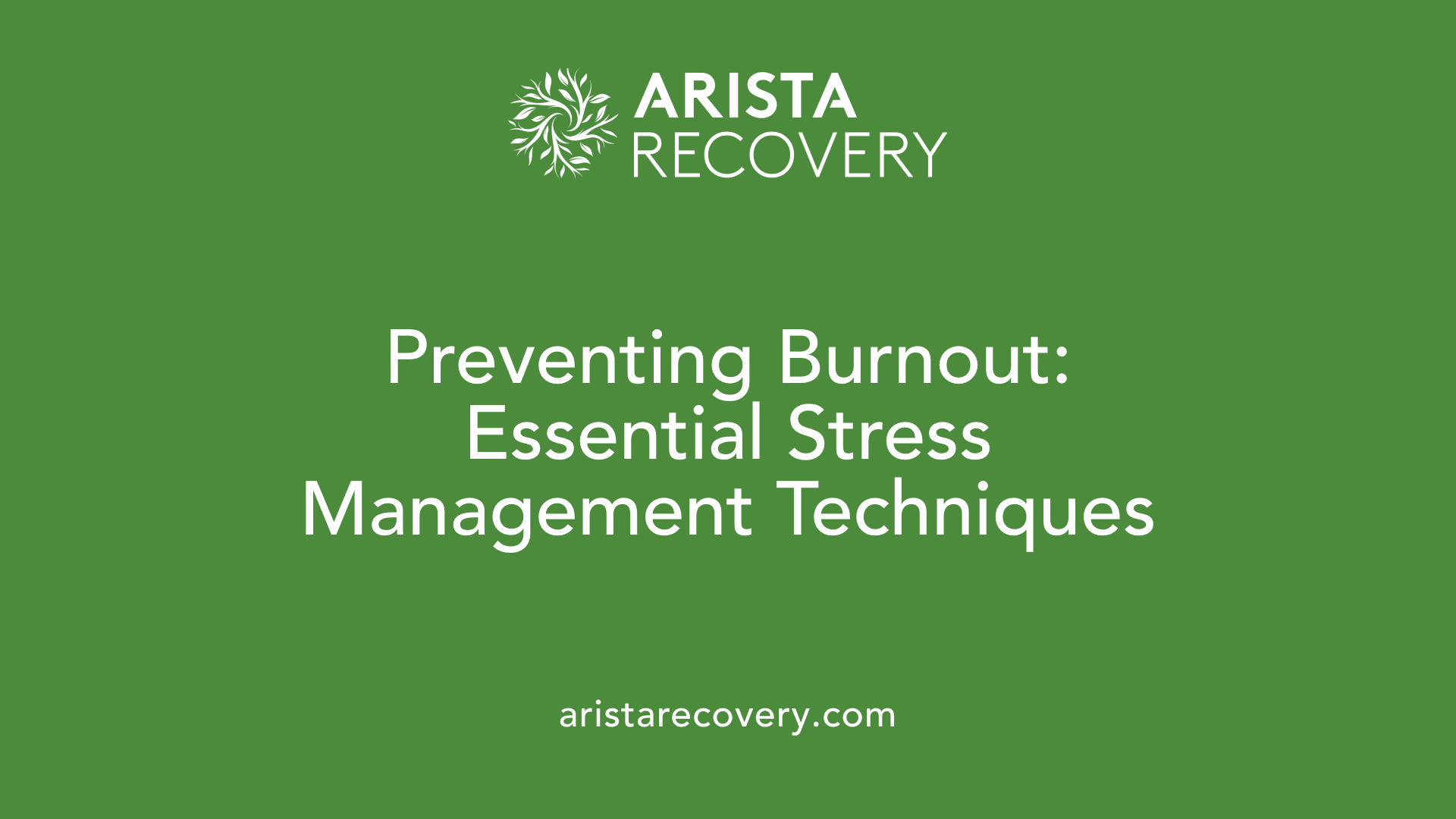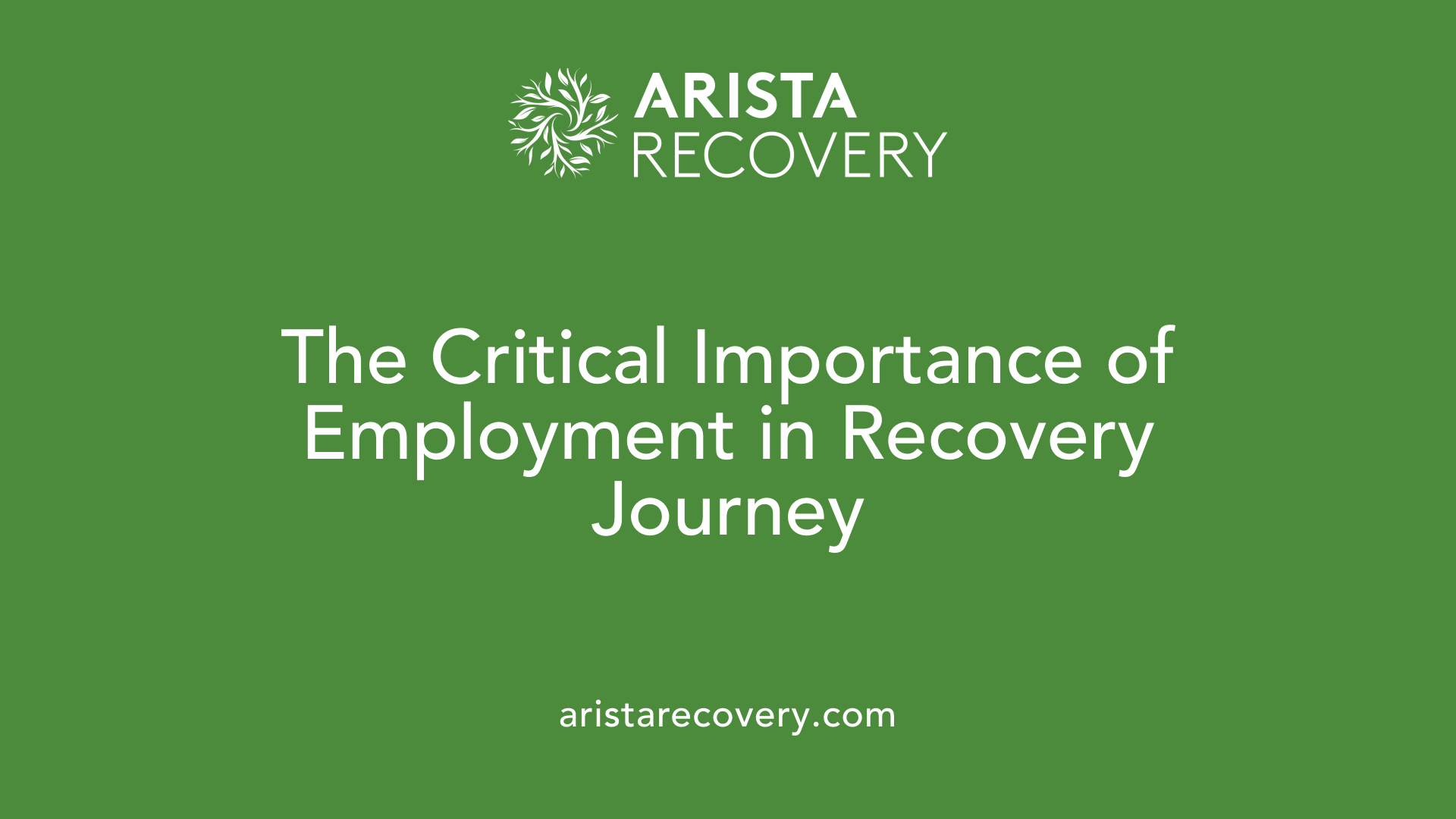How to Create a Healthy Work-Life Balance During Sobriety

Introduction
In the journey to maintain sobriety, achieving a harmonious work-life balance is crucial. For individuals in recovery, this balance is not just about dividing time between work and personal life; it involves safeguarding overall well-being and ensuring that sobriety remains a priority. This article explores practical strategies, support systems, and workplace initiatives that can aid those in recovery in establishing a healthy work-life equilibrium.
Practical Tips for Balancing Work and Sobriety

What are some practical tips for maintaining a healthy work-life balance while staying sober?
Maintaining a healthy work-life balance while staying sober can be achieved through several practical strategies. Here are some effective tips:
Through these strategies, you can create an environment that supports both your professional responsibilities and sobriety, ultimately leading to a healthier and more balanced life.
Managing Stress in a New Work Environment

What strategies can help manage the stress of re-entering the workforce after addiction?
Re-entering the workforce after addiction can be a daunting process, but implementing effective strategies can ease this transition significantly.
Setting Boundaries
Setting clear boundaries between work and personal life is crucial. This helps to prevent feelings of overwhelm and burnout that can stem from a lack of separation between responsibilities. Prioritizing self-care by designating specific times for work and personal activities can enhance focus and maintain mental well-being.
Identifying Workplace Stressors
Identifying specific workplace stressors is empowering. Awareness of potential triggers, such as pressure from deadlines or unhelpful colleagues, allows individuals to proactively manage their environments. This might mean choosing to avoid after-work events where substances may be present, or speaking to supervisors about workloads to ensure reasonable expectations.
Building Support Systems
Building a strong support system is essential for emotional resilience during this period. Engaging with friends, family, and support groups fosters a network of encouragement. Open communication with employers regarding recovery needs and necessary accommodations can create a more supportive workplace. The more individuals feel understood and supported, the better they can manage stress.
Additional Self-Care Techniques
Incorporating self-care practices like regular exercise, mindfulness, and maintaining a structured routine can further mitigate stress. These techniques contribute to overall well-being, making it easier to navigate the challenges of a new work environment without compromising recovery.
Combat Burnout with Effective Stress Management

What are effective stress management strategies to avoid burnout during sobriety?
Effective stress management strategies to avoid burnout during sobriety are multi-faceted. First, it is crucial to identify personal triggers that may prompt substance use. This insight helps in developing a relapse prevention plan tailored to individual needs, which should include a robust support network consisting of friends, family, and professionals who understand your journey.
Incorporating regular physical activity into your routine is essential for mental health maintenance. Exercise releases endorphins, boosts mood, and reduces anxiety. Pairing this with mindfulness techniques—for instance, yoga or meditation—can further enhance emotional regulation and relaxation.
A balanced approach that incorporates self-care practices is vital. Ensure you prioritize adequate sleep, a healthy diet, and schedule personal time for hobbies and relaxation. This helps in maintaining energy levels, which are critical to managing stress effectively.
Building a supportive sober network offers emotional reinforcement during challenging times. Engaging actively with this network can alleviate feelings of isolation and promote accountability. Consider incorporating holistic practices such as art therapy or engaging in community activities to foster joy and connection.
Finally, it’s important to set clear boundaries at work. Openly discussing your recovery needs and potential adjustments, like flexible hours, may safeguard your recovery from undue job-related stress, helping you sustain long-term sobriety.
Employment's Role in Recovery

How important is maintaining employment during addiction recovery?
Maintaining employment during addiction recovery is immensely beneficial. It provides structure and a sense of purpose, which are vital in the early stages post-treatment. Having a job fosters financial stability, enabling individuals to concentrate on their recovery without the added stress of economic insecurity.
Work environments can play a crucial role in reinforcement of sobriety efforts. Employers can implement various initiatives that create recovery-supportive settings. For instance, flexible hours for therapy appointments or support meetings demonstrate an understanding of recovery needs. This type of support can significantly enhance workplace morale and employee retention.
Legal protections, such as those outlined in the Americans with Disabilities Act (ADA), afford individuals in recovery the right to necessary accommodations. This legal backing further solidifies the importance of employment in sustaining recovery journeys, showing that the workplace can be a safe space for those re-entering society.
Beyond the financial and structural benefits, consistent employment helps combat mental health challenges often linked with unemployment, such as depression and anxiety. Stabile employment situations provide social interaction benefits and can reduce feelings of isolation, which are vital for sustaining sobriety. Programs like Employee Assistance Programs (EAPs) facilitate access to helpful resources that maintain this balance, guiding individuals to address their recovery needs while fulfilling work responsibilities.
Creating Supportive Work Environments

How can a workplace foster recovery and support mental health for those in sobriety?
A workplace can foster recovery and support mental health by creating a supportive culture that emphasizes trust, openness, and empathy. Employers should implement comprehensive policies addressing substance use, ensuring confidentiality and clear expectations while offering resources such as Employee Assistance Programs (EAPs) for confidential support.
Providing ongoing education about addiction and mental health can help diminish stigma, encouraging employees to seek help. Workshops and training sessions can equip staff with the knowledge to recognize when a colleague may need support and how to approach the situation respectfully.
Offering flexible work schedules and facilitating return-to-work plans after treatment can significantly aid employees in recovery. By allowing adjustments for therapy sessions or support meetings, employers demonstrate understanding and commitment to the well-being of their staff.
Promoting a drug-free environment and organizing substance-free activities can also enhance employee engagement and well-being. These initiatives not only support those in recovery but contribute positively to the workplace culture as a whole, fostering an atmosphere where everyone can thrive together.
Conclusion
Achieving and maintaining a healthy work-life balance during sobriety is a multifaceted endeavor. It requires active engagement in personal well-being practices, utilizing workplace resources, and seeking community support. By prioritizing self-care, establishing clear boundaries, and securing a supportive work environment, individuals in recovery can build a productive and fulfilling life, reinforcing their commitment to sobriety and overall health.
References
When mental health challenges and addiction intersect, it can feel isolating. At Arista, we offer compassionate, evidence-based, and trauma-informed care to help you heal, grow, and move forward.
You’re not alone in this.
When mental health challenges and addiction intersect, it can feel isolating. At Arista, we offer compassionate, evidence-based, and trauma-informed care to help you heal, grow, and move forward.
Support that moves with you.
You’ve taken a brave first step. At Arista Recovery, we’re here to help you continue with best-in-class care designed for long-term healing and support.
.webp)






